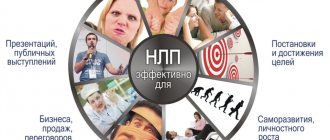Hello, dear readers! What do you do when winter sets in in your relationships with loved ones? Some people prefer to consult with friends. Others choose forums. Some people completely withdraw and begin to delve into themselves. It’s good, of course, when you have the opportunity to visit a good psychologist. However, relatives are often stubborn, and it is difficult to find a real specialist. What to do? Books on family psychology will help! I have prepared for you the top most useful and interesting works. I'll tell you a little about each of them.
"The Map of Love" (John Gottman)
The author became famous for learning to predict divorce just by looking at people. The accuracy is amazing: 90%! How did John do this? For almost 15 years, he observed married couples and their relationships. He measured physical indicators and looked at what was happening in the body during quarrels or peaceful conversations. John can safely be called a psychologist scientist.
“The Map of Love” teaches you to return passion and maintain mutual respect. John does not make sweet promises and universal solutions to all problems. He honestly admits: there are insurmountable obstacles. However, Gottman helps to sort out most of the contradictions, and gives recommendations regarding the rest.
"WE. The Deepest Aspects of Romantic Love"
The famous American psychologist Robert Johnson, starting in 2000, began to study the nature of love. He described his observations and corresponding conclusions in detail in his book about family relationships.
Robert Johnson believes that romance and the very state of falling in love is a kind of psychological phenomenon. This is a period when, when communicating with a person of the heart, we expand and learn the meaning of our life. But at the same time, we necessarily experience disappointment in love.
A book about family relationships by Robert Johnson describes the origins of romantic illusions and the real picture of mature love. After reading, many questions disappear and some actions of a person dear to the heart become clear. There are specific and very effective tips that will help you overcome difficult periods in the life of an already mature family.
"How to Save Your Family Boat" (Cloud Thousand)
How often does your temper interfere with your life? Surely each of us has once done something out of emotion that we later regretted. Cloud offers to restore harmony using simple techniques. The style is a bit heavy, but it is not necessary to read it together. This is important in cases where the partner does not want to acknowledge reality at all.
After reading, we ourselves become a little psychologists. You can never have too much wisdom, so don't give up on books. Have you read anything from the list? What I liked most was the Peases' "handbook." There will be answers to any question. Soon I will make another interesting selection. See you again!
“You and your family. Personal Growth Guide"
This is one of the best books about family relationships from American psychotherapist Virginia Satir. The author answers far from simple questions and touches on current issues. On the pages of the book you can find specific and effective advice that will help you dot all the i's when communicating with a loved one.
In her book about family relationships between husband and wife, Virginia describes our usual everyday life - dullness, hopelessness and why they are taken for granted. Many people have long decided for themselves that marriage is a routine and obligatory job without weekends or holidays.
The author destroys these stereotypes in his book about family relationships and offers many solutions both at the initial stage of problems and at a later stage. Both men and women will find answers to their questions here.
The work is very easy to read, especially since pages with practical advice are replaced by real life examples and contribute to a better perception of the essence of behavioral psychology. The book about family relationships by Virginia Satir is written without pathos, fluff, or an edifying tone, which is something psychologists often do. On every page you will find sincerity, simplicity, and at the same time thoroughness. What is written will open the eyes to the peculiarities of family ups and downs even for those who are not closely familiar with psychology.
Introduction
The field of family psychology is quite young. The psychology of the family, as a separate object of research, began to be studied quite recently, about fifty years ago. Moreover, initially the family was studied in connection with the prevention of mental illness or with the shortcomings of family education. And only gradually came an understanding of the extreme complexity and multidimensionality of the family and family relationships. It happens that the beginning of the study of any cultural or social object means removing it from the category of the self-evident, given. Thus, before, raising children in a family, relationships between husband and wife, and relatives were in many ways a natural-traditional process: almost no one thought or focused on how all this should happen (if such a question arose, it could be resolved reference to a sacred text). This did not mean that it was better or worse - everything went in the traditional way. Then, starting from the Enlightenment, a huge field of pedagogy and childhood emerges and develops, and a new understanding of male and female roles arises. Something similar happens to the family as a whole: what previously seemed simple and natural has now ceased to be so.
This is due to the fact that the institution of family throughout the world is experiencing a global crisis. As a result of profound social transformations, many structures that previously supported the family have now ceased to support them: about a hundred years ago, the communal system collapsed, large cities grew enormously, and the connection between parts of the family weakened. The very concept of “family” has changed. Previously, a family was understood as something large, multi-generational, with the closest ties between people, with distant and close relatives, and this was the case both in Russia and in Europe. There was clanism, and there was a lot of mutual support, although difficulties also arose, since the structure was hierarchical and the degree of interdependence was very high. A classic example from those long-gone recent times: until the grandfather takes the spoon, no one else can take the spoon. But the same grandfather (an adult who had his own children and grandchildren) was running from his great-grandfather, who was chasing him with a stool and wanted to teach him something. The connections were tight, they may be lacking now, but at the same time one cannot think that it was a complete paradise - there were other features.
Many people think that the family is a structure that has been set for centuries and nothing new can be invented in this area. Indeed, what else is as traditional as family? If you open any of the books of the main religions or any of the classic works of world literature of different genres, the key concept everywhere is family. You can recall the well-known works of Russian classical literature. In “Eugene Onegin” A.S. Pushkin, himself in the process of searching for a life partner, goes through a variety of options for family life. The entire novel in verse is essentially a string of family structures and situations, filled with the thoughts of a romantic hero, who is simultaneously attracted and repelled by a quiet family haven. And “War and Peace”, where among the many conflicts of human participation in the historical process, the basic layer clearly stands out - family formation, choice, family relationships.
And yet, upon some reflection, this impression may seem deceptive. Because by family, by family relationships, by family members, by their roles, by the configuration of the family in different eras, different peoples understood completely different things. What is family? What does it consist of? If you are in line with biblical thought, it is enough to recall the families of the Old Testament patriarchs, relationships with concubines, polygamy, which in no way fit into either Christian or modern standards of understanding the family. A family in the ancient understanding is a complex structure, an economic unit, often consisting of hundreds of people - the family includes slaves, relatives, unmarried people, the elderly... What is a family still in many eastern countries? These are thirtieth generations of uncles, aunts, brothers - in essence, a clan.
For centuries, the traditional model of a Christian monogamous family with fidelity to the grave, maintaining strong ties with the older generation, has been traditional for European culture. And it is very important to understand the relationship between traditional family attitudes, which have migrated from century to century, and the very large variability of concepts, which has increased enormously in the last 100–200 years.
It can be stated that in the twentieth century a massive transition began to take place from the traditional family to the atomic, urban family. Different countries are at different stages of this movement, but the main trend is that the majority of the population is concentrated in cities, with special rhythms of life, their own values, and special requirements for education and professional activity. By the end of the twentieth century, the atomic family, i.e. mother-father-children, became the leading type. Russia, of course, has its own characteristics that distinguish us from Europe and, naturally, distinguish us from India or China. But if we talk about the average Russian situation, then while a certain degree of closeness remains between the older generation of grandparents and the “parents and children” family, the general vector, of course, is also directed towards the isolation of individual space. Although often the situation can be influenced by some external factors, such as the presence or absence of living space. It is important here to emphasize the main vector, the trend: gradually, grandparents themselves are less and less willing and able to interfere in the lives of families with grandchildren. Grandparents increasingly want to live for themselves, their personal, social, work lives, and more and more families want to distance themselves, live with their own minds, their own resources, and build their own lives. Therefore, now in Russia a family is, first of all, parents and children. We can say that at different moments in life, grandparents can move closer and further away, children will grow up and leave, but the basic, central concept of the family now is the “father, mother and children” unit.
It is obvious that the modern atomic family - dad, mom, children, herded into a city cage on the 17th floor - will differ from the family in the traditional patriarchal sense. Parents run around to work, send their children to kindergarten, and see very little of each other.
We are no longer talking about the fact that after the metaphysical, philosophical, cultural breakdowns and turning points of the 19th and 20th centuries, the idea of man and his social role is gradually changing. And when a person experiments with everything, including his body (artificial organs, transplantation, cloning, sex change), in this situation, naturally, the understanding of the family changes. From the atomic family, which was born in Russia roughly in the 60-70s, and in the West earlier, a transition is already underway, some other family options are appearing, which were difficult to imagine, for example, in the years of our youth, especially more during the youth of our parents.
Thus, thinking about family must take place in the context of the times in which we find ourselves. Now we can state, no matter how we feel about it, that the Christian, monogamous family with fidelity to the grave, traditional for European culture, for Russian culture for centuries, is becoming, rather, one of the options, perhaps even disappearing.
Why then do references to traditional ideas arise within this fluid situation? First of all, this is important insofar as the experience of our ancestors and their life attitudes live within us. It is known that the impact of critical family situations can be traced over several generations. In addition, we are also influenced by general cultural and national attitudes, some of which can be extremely stable and form a sedentary part of the identity of a modern person. In addition, one can observe how, in conditions of sudden changes, a completely understandable desire to stop and even move back arises. Thus, the real picture becomes even more complex, including many different, sometimes opposing trends. Will this situation continue? This cannot be said with complete certainty.
“Who should I give the apple to?”
Another sensible book about family relationships from domestic authors - Leonid Zharov and Svetlana Ermakova. The manual is perfect for those who are used to thinking, analyzing and carefully reading the material.
But the need for such an approach does not mean at all that the book was written with an eye on the reader’s knowledge in some psychological aspects. There is no complex language here, no originality inherent in such reading material, no fancy turns of phrase, only understandable and, as they say, human language.
However, the format of the book is somewhat different from the usual literature on psychology. On each page you will find thoughts, sketches and short stories where a thorough analysis of situations is carried out and options for solving problems are proposed.
Natalya Tolstaya “Men’s secrets that you need to know before living happily ever after”
Misunderstandings that arise between spouses quite often lead to disappointment, resentment, misconceptions, and mistakes. One of the main reasons for misunderstandings in family life is the specificity of the thought processes of the male and female brains. A man, when committing an act, does not think that his wife can interpret his actions completely differently.
The same thing happens with women. Certified psychologist, writer Natalya Tolstaya, in the pages of her book on family psychology for women, helps representatives of the fairer sex understand the vision of problems relating to intimate family issues from a male point of view.
Distinctive features of the book
Take, for example, such a widespread stereotype as women’s “sawing.” The authors competently explain why a good half of wives are forced to act as a “sawmill,” while husbands do not sin like that. It tells us exactly what types of “brain damage” there are and how to finally say goodbye to this problem.
Another important nuance that the authors place special emphasis on is a realistic approach to solving the question: “We don’t know how to talk about this?” The age-old problem is considered: the wife wants her husband to understand her hints, while he is accustomed to directness and does not pay attention to her grievances.
Similar and other minor issues that lead many families to a dead end are considered and resolved here. The book is not without the vicissitudes of sexual life. The authors raise this burning topic without hypocrisy and help achieve family harmony.
"Five Love Languages"
Gary Chapman has a degree in philosophy and is one of the most sought-after marriage and marriage counselors in the United States. The book radically changes the reader and his views on everyday life. If you want to understand the motives or subtleties of the soul of women and men, then this work is a must read.
Many married couples changed their attitude to life after reading this book: they abandoned divorces, breakups and radically changed their relationships for the better. "The Five Love Languages" is a kind of manual for desperate couples.
The book is written in clear and easy to read language. There are no “heavy” phrases, scientific excerpts or other abstruse things here. From the first to the last chapter, you will feel like a full participant in the events and fully understand what is being said and what the author wants to convey to you.
"Conflicts in the family"
Andrey Kurpatov is respected by readers of different age categories and life beliefs. The popularity of the writer, and at the same time the psychotherapist, is due to the simple and understandable presentation of the material.
Andrey Kurpatov explains fundamental things in an accessible way, and the phrase “family happiness” will no longer look so philosophical after reading this book about family relationships, but will acquire more than clear features.
Page by page you will delve into the origins of personal problems, comprehend your mistakes and take a firm step towards a new life. The book touches on almost all areas of family relationships: sex life, jealousy, addictions, lack of initiative, roles, etc.
The text is not distinguished by long and extensive discussions. Every question in this book about family relationships is explained with utmost clarity and honesty. Moreover, specific examples are given from the lives of real Russian people whom we see on the streets every day.
"Why do men lie and women cry"
Psychologists and at the same time spouses Alan and Barbara Pease know from their own experience what a family is and what problems it faces. The authors talk about complex things in simple and accessible language. There are no flowery phrases, extracts from some scientific treatises, or anything that the average reader cannot understand.
That is why books by these authors are flying off the shelves like hot cakes. Readers who are not accustomed to boring moral teachings, but who respect detailed specifics, leave entirely positive feedback about this work.
The book contains a lot of real examples, many “uncomfortable” and sensitive topics, as well as a decent amount of humor, which harmoniously complements a high percentage of high-quality and truly useful information.
From the authors
The title “Modern Family: Psychology of Relationships” can hide any content - from very special to popular. This book is quite universal and, in our opinion, may be of interest to a wide range of readers - both those who care about the state of the family in Russia and are interested in thinking about what a family is in general, and those who are concerned about the state of their own family, as well as specialists – sociologists, cultural scientists, psychologists.
Created by authors who have extensive practical family experience (Ekaterina and Mikhail Burmistrov are raising 11 children. – Ed.
), the book differs from purely theoretical works, which are often aimed at studying the family as an object and do not at all encourage one to solve any existential issues from within. On the other hand, it also differs from purely popular publications from the series “How to make sure you don’t quarrel with your husband?”, “How to make sure your children don’t scream?”. Due to our professional and social activities, coming into contact with many families, we have the opportunity to talk about what a family is in the widest range of interests and tasks being solved. Thus, we offer the reader a study related not only to our own experience, but also to an attempt to understand the experience of many families with whom we have been dealing for two decades.
Family psychology is a young science. It began to actively develop after the Second World War. This cannot be called a great gain, because when they begin to study something, it is a sign that the problem has ceased to be a living and natural phenomenon. The fact that the family began to be studied and approached from a scientific point of view, trying to influence it, is, on the one hand, natural within the framework of the general scientific research paradigm, and on the other hand, alarming, because the family is becoming a disappearing element, like folklore or childhood, which began to be studied even earlier. Childhood has ceased to be spontaneous; it has become overgrown with a huge number of norms that parents must follow. Family psychology, in addition to its benefits, can bring all sorts of ambiguous things to families. You can gain a lot of benefits from visiting a psychologist, but you can lose the feeling that you yourself are able to cope with the situation, manage your child’s life and know how he needs to grow.
A family is an organism that goes through stages of growth and, like any organism, is at some moments more vulnerable (young trees need to be tied up and treated, tender plants need to be covered at night). For example, everyone knows that you need to spend a lot of time with children in the first years of life; without care, they cannot develop at all. And nothing is known about the family. It is believed that forming a family is not a process, but a moment: they went, got married, got married, or had a civil marriage - and now there is a family. In part, yes, because the decision to live together is truly the moment when the family begins, it is the most powerful thing. But in many ways, a young family is a seed, and what it will grow into and whether it will grow, whether the tree will be crooked, what kind of crown it will have, how many fruits it will bear, is unknown. It depends on the people themselves, and on the circumstances of their lives, and on what they inherit. The moment of marriage is a story that is just beginning. The family needs any support; there should be a feeling that you can talk to someone who understands about your problems.
A family is more than just a sum, just the people who make it up. There is something about her that is elusive. The family is an organism rather than a mechanism, and has a zigzag growth property. One of the concepts of family psychology is crisis. “Crisis” comes from the Greek “perestroika”, “change”. In our country, due to cultural characteristics, the word “crisis” is perceived only next to the concepts of “economic” and “political” - nothing good. In fact, a crisis is a restructuring, a change, a transition from one thing to something else. A certain gate has opened, a certain threshold has been passed - and you find yourself in another space, psychological in particular. But we have a rich layer of folklore, where they knew a lot about family crises. It was called differently, but wedding anniversaries were clearly celebrated: the first wedding was made of linen, then wooden, then 5 years - iron... In different cultures they were celebrated in different ways (“The Cultural World of Childhood” by M. Mead, “The Golden Bough” by J. Fraser) . This is what we are now deprived of - support for folk, cultural, and family traditions. Nothing supports the family. But there are many things that shake the family.
What is the significant difference in modern attitudes towards building family life? Some basic knowledge was previously passed on without any books, without any manuals, by itself for many generations, no one read anything, everyone already knew it (or didn’t know). Now generations are growing up who, strange as it may seem, read in books about which way to approach a husband or wife, what to do with a child. That is, people walk through family life with a book in their hands. We believe that analysis of many situations, the unobtrusive nature of recommendations and advice can help awaken in people their own energy, their own thoughts, their own abilities, the desire to intuitively, based on correct observations, still try to delve into this life, into this family space. , to find the way ourselves, because, of course, it is impossible to learn from any books to love, or to raise children, or to create a family. This is a path that a person must go through and understand for himself.
Among the many family situations that are explored in the book, there are a large number of conflicts, problems, and crises. Conflicts, from our point of view, are not something catastrophic; they can become catastrophic if they are not resolved and become chronic. Conflicts, on the one hand, are an engine, a motor. When the “car” drives, it means that the family is developing: first there are conflicts in the grinding-in stage, then there are crises of passing through some middle stages of the path, then, perhaps, there is a crisis of letting children leave the nest. As soon as new tasks appear, as a rule, conflicts arise - this is a reaction to the changed situation. And people must learn to resolve them.
Our book may turn out to be not so much a textbook, but, as they say now, a “road map.” It is very important to have an idea of what happens and what options there are for the development of different situations. This is not a description of what is necessarily going to happen. Perhaps some problems will pass you by, and some you will get stuck on. It is very important to note that this book is compiled largely on the material of group sessions for parents, devoted, of course, to complex conflict situations, hence the concentration on problem analysis. Just like in driving courses they teach you to understand the rules of the road and typical difficult situations on the roads. This is not a first aid, not a step-by-step guide, but a more detailed, discussion-based, thought-provoking study. It is clear that this does not exhaust the content of family life, because people form families in love, for creation and creativity, hoping to find happiness. This is true, but entering into the fullness of family life requires a lot of work, and sometimes everything is very difficult.
Family is the way of life. Let's take a few steps along this path together.
Ekaterina and Mikhail Burmistrov
* * *
The title turned out to be quite academic, but the content of our book does not pretend to be universal or encyclopedic. If good “universal manuals” are written, they are written at a later age.
This book is more like travel notes, sketches of travelers in the spaces of family life. And it may be useful to those who began this exciting journey later than Mikhail and I (our marriage turns 23 years old in 2021 - not even a silver wedding, but still). The Lord gave us 11 wonderful children. None of them have yet built their own families. From our point of view, the final conclusion about whether our theses and conclusions are correct can be made only when the great-grandchildren become old enough. It is unlikely that we will live to see this. But time is the best judge.
We also hope that people who are at the “top of their forties” will look at their family with more understanding.
This book may help grandparents understand or remember what happens in young and mature marriages.
“The point of view of the authors may not coincide with reality and your ideas.” Then our arguments and theses may anger or provoke you, and you will formulate your own position, your own view on certain issues. And this is the most important thing – the formation of the author’s position. In relation to your own life.
In this book you will not find lies or fiction, theories that have not been tested or have no relation to life.
Everything here is verified by life.
Ekaterina Burmistrova
"Men are from Mars, women are from Venus"
John Gray is a US-based relationship counselor, psychology teacher, and author of many works in the field of personal relationships. One of Gray's most high-profile books, which became a bestseller, is “Men are from Mars, Women are from Venus.”
Judging by the responses on the forums, this work completely changes the reader’s consciousness. The book saved many people from divorce, taught them to understand not only their significant other, but also themselves, and at the same time became a reference guide for solving and preventing family conflicts. Men and women who are looking for a way to save their marriage or improve their relationship should definitely pay attention to it.
Features of the book
Gary Chapman took as a basis five types, or, as the title says, languages of love, from which he builds throughout the book. They help to look at the situation from a completely different perspective and gently push the reader towards analysis.
The author believes that any drama that has played out or is just looming over a family can be dispelled by one or more love languages:
- Encouragement.
- Presents.
- With help.
- Time.
- By touch.
Each of us is vulnerable to one of these languages, and Gary Chapman gives detailed answers on how to figure it out and avoid family conflicts. There are no abstract or fantastic instructions here that are not applicable in real life. The author gives specific and competent advice.
Alice Bowman "Happily Ever After"
The popular American writer and journalist in this book on the psychology of family relationships gives advice to couples who want to protect their marriage from serious problems and extend the romantic relationship of the initial stage of dating for life. Alice Bowman had to face the difficulties of family relationships herself. The woman was on the verge of divorcing her husband, and it seemed to her that it was impossible to fall in love again with a person towards whom at times you feel hatred.
Nevertheless, having pulled themselves together, the couple found the strength to resolve the difficulties of mutual understanding and saved the family. The author’s universal recommendations help to renew relationships that are fading from everyday worries and prevent a breakup.
Distinctive features of the book
The book touches on all aspects of family relationships. Why do we love? How and why do we make mistakes? How do we justify ourselves and our mistakes? On the pages of the book you will find effective advice on what and how to change in your picture of the world to improve family relationships.
Here you will see women who carry themselves, their children, their alcoholic husband, and everyday life on their shoulders all their lives. Moreover, they step on this rake with enviable consistency, and do not look back at the sad experiences of mothers, friends and acquaintances. There are also men who constantly connect their lives with the “wrong” women who suck all the juice out of them.
The authors discuss, analyze and give specific advice for solving such problems. For readers who are honest with themselves and are ready for dialogue, this book will be an excellent tool for finding happiness in family life.











